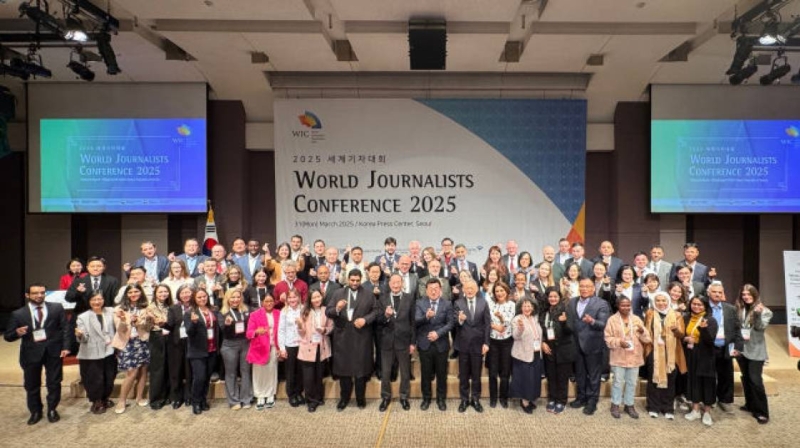Multiparty polity Danger of politics without principles
Multiparty polity Danger of politics without principles
Published: 12:00 am Jan 26, 2005
Subarna Chhetri:
Today, in the context of happenings in the country, one finds it quite complex as to where to start from. It is also very difficult to say whether the media loves it or otherwise in doing so, but it daily churns out stories related to death and destruction of the Nepalis resulting from the current conflict. Perhaps, when the time of judgment comes, we shall not be asked what we have read but what we have done.
However, one thing is very clear. The fact that the nation is definitely being taken on a rough ride, solely because our so-called political leaders have chosen the path of politics without principles since the very inception of democracy. In the last 14 years our petty leaders with their greed for power have taken the country for a ride, to nowhere. In these years one thing they were able to achieve, knowingly or unknowingly, is giving birth to the Maoists. About the Maoist problem PM Koirala in 1996 is on record saying it is “just a storm in a teacup”. Today he must realise that the problem is no storm but has taken the shape of tsunami, leaving behind distress, death and destruction.
In the name of democracy, the people and lately “regression”, the infighting politicians are fine-tuning their craftsmanship to camouflage their greed and grab for power while the nation is burning. History speaks volumes and bares the practice and performance of our parties. Let’s begin with the so-called country’s ‘grand old party,’ the Congress. After the loss of B P’s direction, the Congress today is a corruption-laden fractured party. Carrying the tag of practising double-standard, the CPN-UML split and is very precariously again sewn together. The RPP’s story is very much the same, split, sewn together and again split while the Sadvawana party remains split right down the middle. The hallmark of all the parties is that they are plagued with intra-party rifts.
Hence, based on these facts, it will be both naive and foolish to expect any sense of direction from them to lead the nation. In their game the nation becomes a silent spectator with no cheering as, as many prime ministers are elected in as many years, strange bed fellows become coalition partners; coalition governments rise and fall with quick frequency while the parliament is dissolved and mid-term polls called at political whims. If one stops to remind them of such practice of filthy political exercise, a point blank answer is provided... all this falls in line with the practice of democracy. In truth, instead of becoming and proving to be the rule of majority, the politicians have made the parliamentary system a “dictatorship of the majority”, with no respect for the rights of the minorities.
Thus, ruled by the mob of majority the country is fast heading towards disintegration. One gets the notion that even at these critical times the parties are in no way helping the King in the formation of an all-party government. On the other hand, the top political guns of the two ruling parties are spending precious time and energy in the issue of choosing the governor of Rastra Bank as if it were the major problem facing the nation. Yet, the Koirala-led four parties spend their time and energy marching round Tundikhel while causing much discomfort to the people. Fighting the “regression,” someone rightly has questioned the rationale behind Koirala’s decision to bend the rules to enable him to stand for the post of president for a third term. For a person combating “regression” this unconstitutional manifestation is truly bizarre.
Now the time has come for the nation to take stock of the situation. The mob of the majority who take the credit of bringing democracy to this country, should they be considered the valiant ones or the villains, for pushing the nation to this unfortunate state of affairs? Our politicians knew how to bring in democracy but were completely bankrupt in the means to keep it. Mahatma Gandhi had often warned the nation of the danger of politics without principles, wealth without work, pleasure without conscious, and knowledge without character, commerce without morality and worship without sacrifice. For us there is a lesson to draw from this.
The Maoists too must realise that killing their own brethren and turning their motherland into killing fields will never assist them to realise their goals. They must throw away the attitude of zero tolerance for others. They must also learn to read the writing on the wall and realise what would become of them if the nation’s greater silent majority also showed zero tolerance towards them. The spontaneous and unanimous rise against Maoist atrocities by the Dullu (Dailekh) villagers and the on-going Jana Morcha campaign should make the Maoists put on their thinking caps. The insurgency is systemically destroying the villages, thus destroying the history of our nation. If at all they come to power one wonders what they will inherit.
It is time for all of us, especially for the government, political parties, politicians, Maoists and media to show sacrifice and sit together to work towards a national goal and vision which will bring peace and prosperity to the country. Today, we are definitely sitting on a tsunami time bomb that is ticking away every minute, which is likely to explode any time. War is something no one wants, but everybody gets. Peace is something everybody wants, but no one quite finds. Hope — a word with a single virtue; it is better than hopeless.
Chhetri is a freelance journalist



